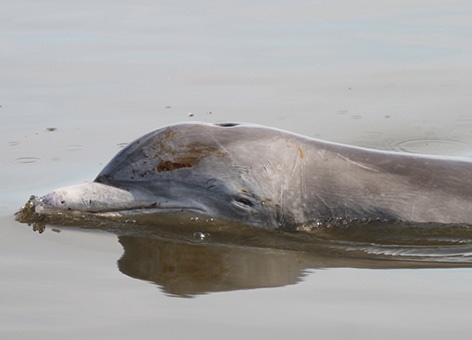 More than 261 bottlenose dolphins have stranded across much of the US Gulf Coast since early February 2019, triple the usual number, with about 98 percent of dying.
More than 261 bottlenose dolphins have stranded across much of the US Gulf Coast since early February 2019, triple the usual number, with about 98 percent of dying.
Scientists are to investigate whether lingering effects from the 2010 Deepwater Horizon oil spill (also referred to as the BP oil spill/leak) and more immediate effects from low salinity because of freshwater flowing from high rivers and a Louisiana spillway contributed to the deaths. Many of the dolphin carcasses recovered were however very decomposed, limiting the ability to collect samples to determine the cause of illness or death, but 23% of the dolphins stranded from Louisiana to the Florida Panhandle had sores consistent with freshwater exposure. For dolphins, too much freshwater can result in eye disorders, skin lesions, abnormal blood chemistry, and in some cases death.
A 2015 study funded by the Deepwater Horizon National Resource Damage Assessment found dolphins continued to die for years after the oil spill – effects included problems with lungs and adrenal glands, which produce stress-related hormones; blood abnormalities; and general poor condition. The spill contributed to the Gulf of Mexico’s largest and longest dolphin die-off with approximately 3.2 million barrels (134 million gallons) of crude oil spilt over the course of 87 days, staining 1,100 miles of coastline. The immediate impacts were severe, with oil-soaked birds, fish, and turtles washing up on shore. The latest strandings have been declared an Unusual Mortality Event which is defined under the Marine Mammal Protection Act as a stranding that is unexpected; involves a significant die-off of any marine mammal population, and demands immediate response.



